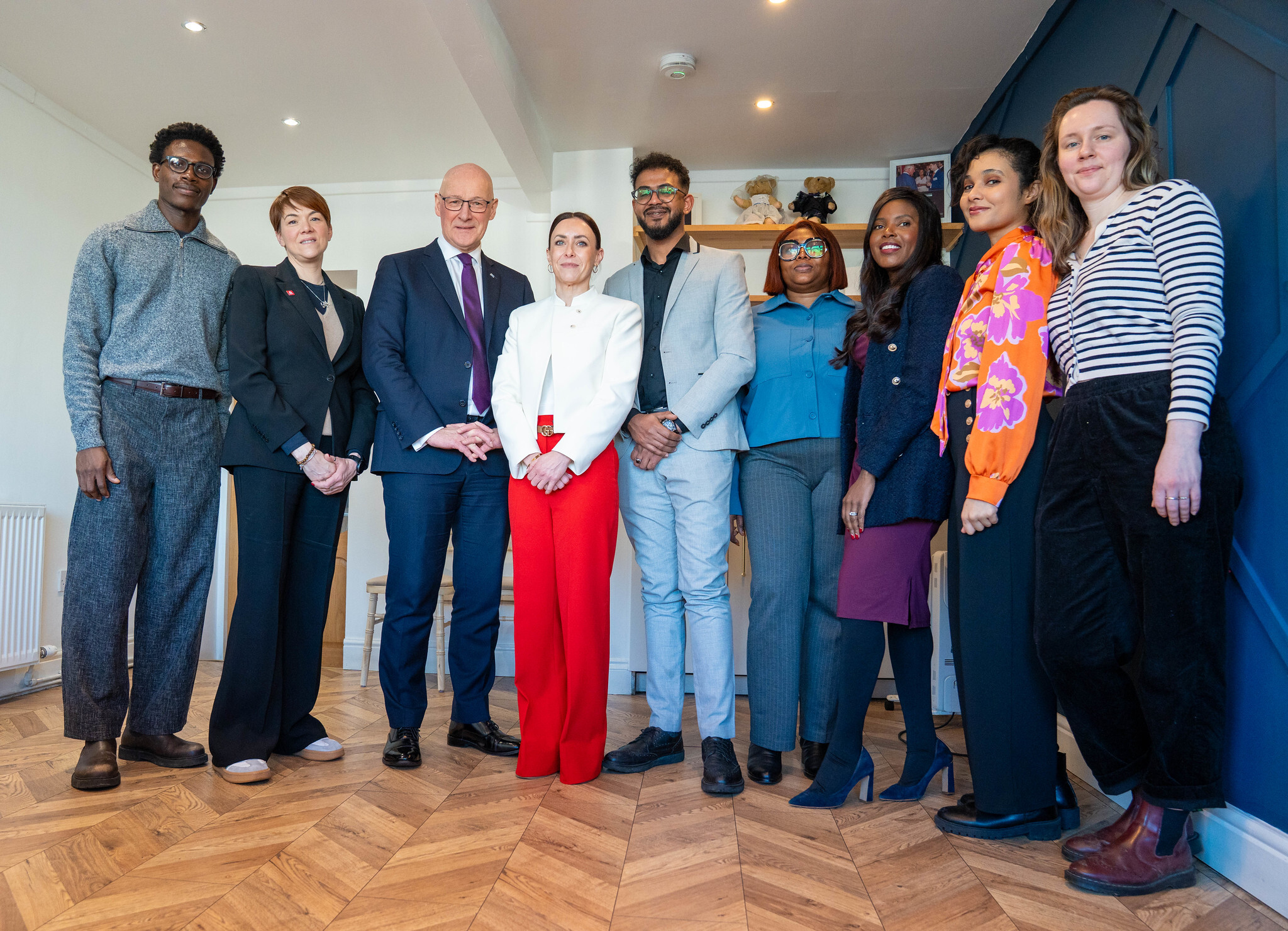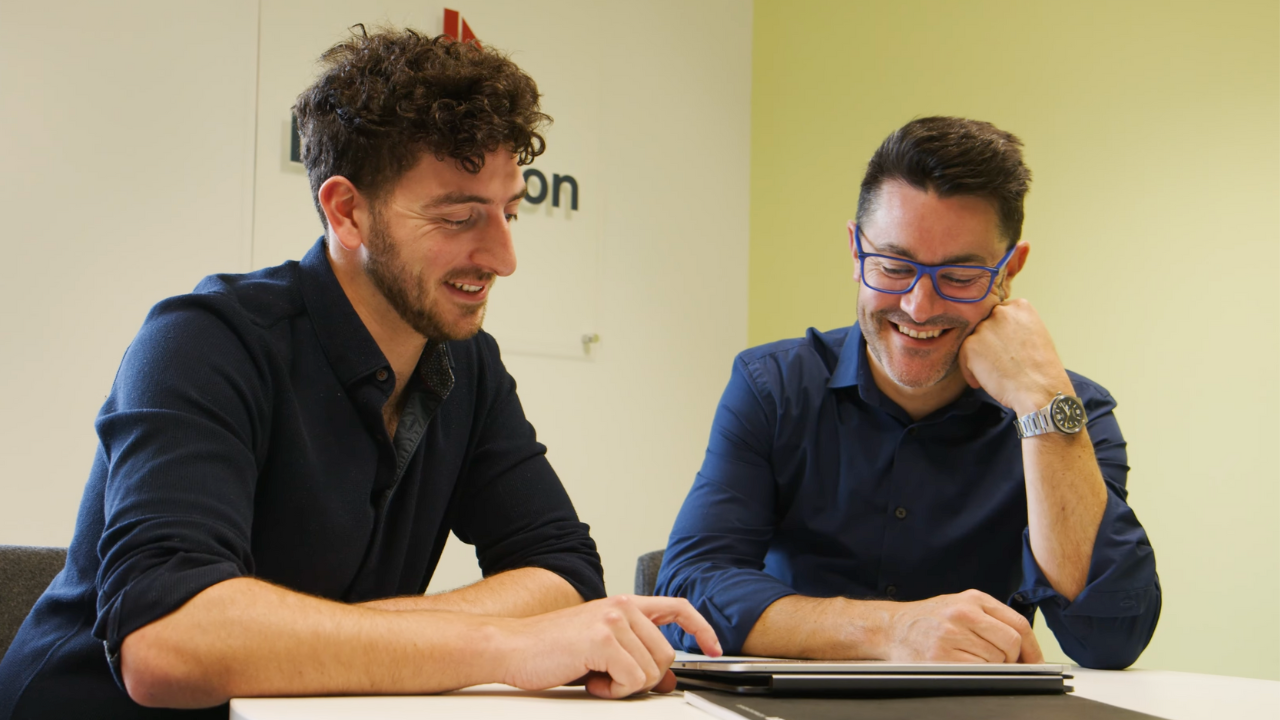An alumna of the Saltire Scholar programme, Colette founded Cerci Equestrian the same year she graduated from university with a First Class Honours degree in Business, specialising in Digital Marketing.
As COP26 in Glasgow approaches, we caught up with Colette to discuss sustainability and the fashion industry, the challenges faced and the new innovations that could help society overcome 'fast fashion' in favour of quality garments.

ES: Could you tell us a little about your background and how Cerci Equestrian came into being?
Colette Beagan: My name is Colette Beagan and I am a 2018 Saltire Scholar. Following my Saltire Internship I graduated University in 2019 with a first class honours degree in Business specialising in digital marketing. Later in 2019 I founded my first business Cerci Equestrian and this year in 2021 I launched my second business, Connette Digital.
Not long after I founded Cerci I was in London meeting with potential manufacturers when the first COVID-19 case was confirmed in the UK. The pandemic caused several delays and setbacks for Cerci and I worked tirelessly throughout lockdown, whilst being a keyworker in my day job, to get Cerci to launch in June 2021.
ES: What aspects of sustainability have you considered in building your business?
CB: Our main sustainability factor is that we hand cut and manufacture all garments in London, UK. Manufacturing in the UK is 47% greener than manufacturing abroad according to information published by The David Nieper Foundation in 2021.
We have a zero waste policy that is supported by our suppliers and manufacturers — ensuring zero waste before, during, and after production. We incorporate the use of fully recycled fabrics into our designs and plan to expand this in our future collections. We also contribute to circular sustainability by donating one tree to One Tree Planted for every unit we sell.
In addition to this, one of our payment partners — ShopPay — calculate the carbon footprint of each order placed through them and plant trees to reverse the carbon footprint of that order. We also work with the ReGAIN App encouraging our customers to recycle their old clothes from any brand in exchange for an exclusive Cerci Equestrian discount code.
ES: Why do you think it is important that sustainability is a focus for entrepreneurs in building businesses?
CB: In the fashion industry there was a time where being a sustainable brand was a USP, now it is expected. The fashion industry is responsible for 10% of the worlds environmental damage which is higher than the aviation industry.
Customers are looking towards brands to be responsible in their supply chain and manufacturing decisions. Especially in premium and luxury brands priced at the high end of the market.
Established luxury fashion brands' products have always been purchased for longevity, making them more sustainable than fast fashion.
ES: As a young entrepreneur, do you think your focus on sustainability is different from those who are older and more established?
CB: Yes and no. Established luxury fashion brands' products have always been purchased for longevity, making them more sustainable than fast fashion. This places luxury brands in a position where they must continue to adapt on their sustainable journeys to meet consumer demands, and they have. On the other hand, fast fashion brands rely on cheap mass-manufacturing, frequent consumption, and short lived garment use — a business model that will never be sustainable yet is in very high demand.
A girl shopping for a dress at the weekend won’t want to spend £300+ on an outfit to only wear it once. As long as consumers are looking for cheap one time outfits, the multimillion pound fast fashion companies won’t change their business models for sustainability.
ES: Do you have any thoughts on Scotland’s opportunity to be a leading player in the sustainability space? If so, what do you think is important for the country, our govt, and people to consider?
CB: In terms of the fashion industry, Scotland and the UK as a whole will struggle to compete with the low manufacturing costs abroad to encourage more UK designers to manufacture here.
The harsh truth is sustainable clothing is expensive to make.
Our lowest priced item of clothing currently is £154 and our prices will be increasing next year. Sustainable costs and the majority of the people in the UK can’t afford to pay the luxury price point for clothing and look for other ways of buying sustainable such as second hand items.
As long as this imbalance exists Scotland and the UK will fall behind on sustainable fashion. This can be seen already — with only 3% of garments designed in the UK actually being made here.

ES: Who do you admire and respect in the sustainability and entrepreneurial space?
CB: Patagonia are really influential sustainable brand and their slogan is that they are “in business to save our planet”. Patagonia make sustainable clothing and offer free lifetime repairs on all items to increase the longevity of their garments.
They also actively campaign on climate change and other environmental issues to tackle sustainability issues head on.
ES: What are your sustainability plans and goals for the future?
CB: Our current sustainability focus is to expand recycled fabrics throughout our collections. Fabric suppliers are starting to work with ocean plastics and experimenting new ways to turn these into fabrics. I think this is really cool and would like to include this in future collections.
Recycled fabrics aren’t as strong as natural or manmade fabrics due to the broken down composition of the fibres being wound together to create the yarns. So we are taking our time to improve our sustainable impact whilst also maintaining the quality of our garments.
ES: What advice would you give to anyone looking to start their own entrepreneurial venture?
CB: I would say think big but start small. Have big goals for your business whilst allowing yourself time on the journey to learn and adapt to reach that goal. I would also say to focus on being different, don’t follow the crowd, be unique and stand out in your market. Don’t be afraid to put yourself out there.
-----

From real-time dashboards to cost-saving automation - structured internship programmes deliver commercial results. Here's how to make them work.

Young entrepreneurs will be supported to turn their ideas into successful businesses through a new Scottish Government programme.

An internship through the Saltire Scholars Programme helped Donaldson Group create Spec3D, a new 3D visualisation business now used by house builders across the UK.